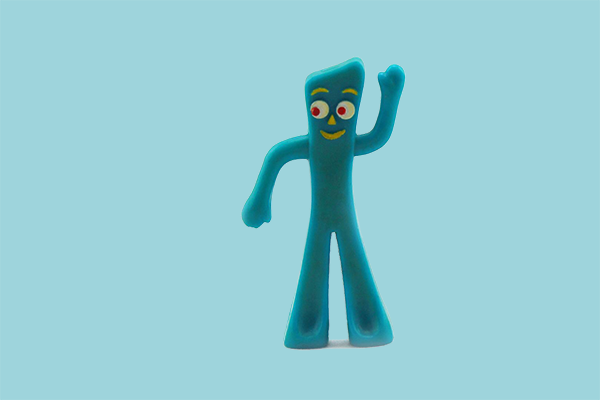When things don’t go to plan, I always rely on the Navy SEALs motto: “Semper Gumby.”
As opposed to the motto of the Marine Corps, “Semper Fi” (meaning “always loyal”), the SEALs use “Semper Gumby” as a reminder to be “always flexible.” While “Semper Gumby” might seem like an irreverent motto (it’s based on a stretchy cartoon character), a flexible, adaptable and creative mindset is arguably one of the most important mindsets for teams and individuals to cultivate in today’s exponential world.
Now, this isn’t a motto that works for every team, especially where uniformity of thought and action are required. It wouldn’t work well in an Amazon fulfillment center or a large military organization like the Marine Corps, for example. The Marines are trained to work as a homogeneous unit loyal to their unique code of conduct (again, “Semper Fi”). This requires uniformity and adherence to the institutional standard and code.
But what may work for a larger unit working on a standardized mission isn’t optimal for a small team of highly trained operatives tasked with solving complex new challenges. The homogenous unit seeks to strip the individual of his/her unique creative powers and ascribe the power to the uniformity of the team. The individuals become mere cogs in the machine.
By contrast, an adaptable team questions everything, old rules that don’t work are canned, and new ideas embraced. Due to their unique training and team structure, SEALs know that optimal teamwork and success comes from diversity of thought, inclusiveness of ideas, and individuality embraced within the team. They’re a group of individuals who hold onto their uniqueness while fusing together as an adaptable team to accomplish extraordinary things. It is their Semper Gumby-ness that allows for this dichotomy of “I + We = Success.”
While the SEALs may be irreverent with their choice of their motto and mascots (Sammy the SEAL and Freddy the Frog), they hold an impeccably high standard to adhere to their own high standards – but rarely to anyone else’s standards. They take “Semper Gumby” seriously and embody it in everything they do.
Another example of that reverence for standards over institutional inertia shows up in the selection of the Navy SEAL’s insignia. For most military units, the insignia that represents their warfighting specialty is designed by someone in the bureaucracy and issued without the troops’ input. The SEALs didn’t like the insignia that was handed down to them, so they created their own.
They made it by copying the eagle off of a Budweiser beer can to represent the air, combined it with King Neptune’s trident to represent the sea, added a flintlock pistol to represent land, and held it together with the Navy anchor. The men created and began to wear this new insignia until the Navy brass threw in the towel and adopted it for the nascent unconventional unit. To this day, the insignia is still called the “Budweiser” by many operators. This kind of humorous irreverence against the status quo is baked into the SEALs’ psychology and culture. It’s gotten them in trouble with bureaucratic upper echelon types, but it has served them well in their team cohesiveness and adaptability quotient.
Adaptability can be shut down very quickly if the organization doesn’t support it at all levels. It must be trained at the individual and team levels, and the organization must have systems that allow for sensible risk-taking and creative problem-solving. If all don’t share the Semper Gumby mindset, flexibility gets stunted, reverting to the lower standard of routine and uniform action.
You can’t expect an individual to be flexible within a rigid organization. And you can’t create a culture that is expected to be adaptable if certain individuals aren’t adaptable. Even a single leader who lacks the needed flexibility, and leads “by the book,” will shut down the adaptability engine of the team.
The SEALs are a perfect example of how, when excellence through flexibility is baked into the organization, the team, and the individuals as a standard, then a flexible, adaptable system of excellence results. And a flexible system allows the team to lean into rapidly changing, risk-infected situations instead of freezing in the face of them. This level of flexibility is proving to be one of the most important skills to have in today’s explosively evolving world.
Semper Gumby is a trainable skill, and I believe one of the most valuable in this new exponential age. Getting to adaptability starts with leadership. If you haven’t read Staring Down the Wolf yet, you will find that it dives deep into the 7 commitments that forge elite Semper Gumby teams. Perhaps it can spark some discussion and provide a roadmap to create your own Semper Gumby teams within your organization.
Semper Gumby: Why Flexibility is King


